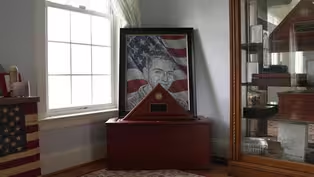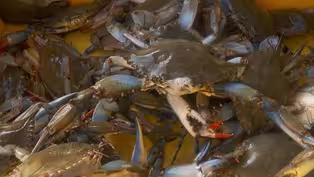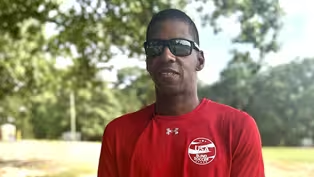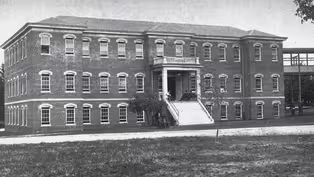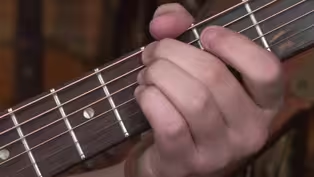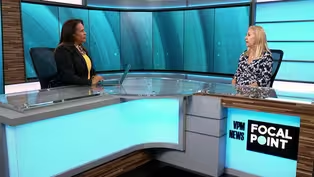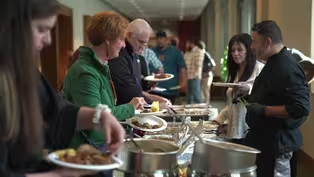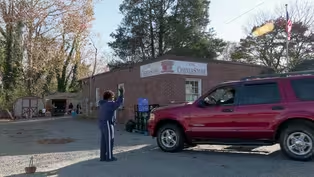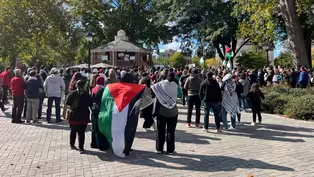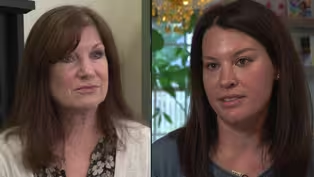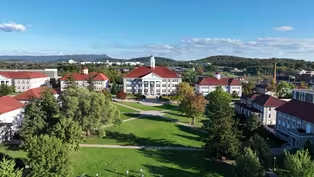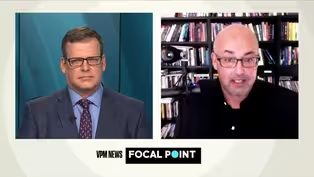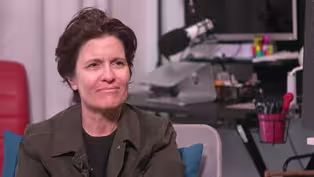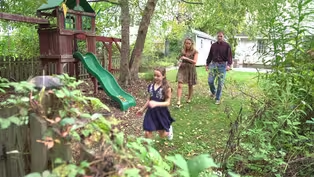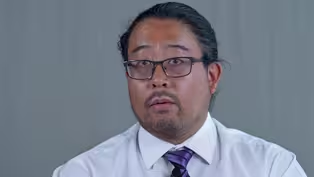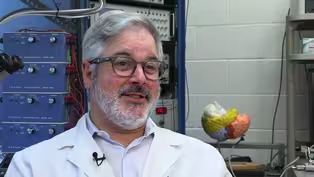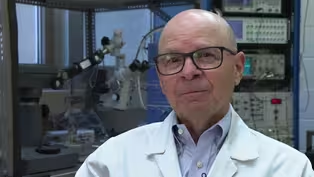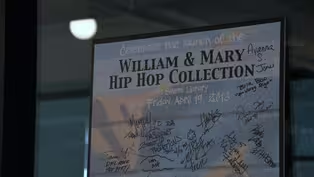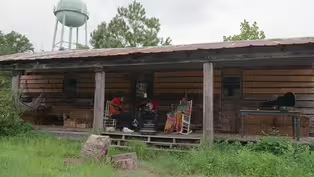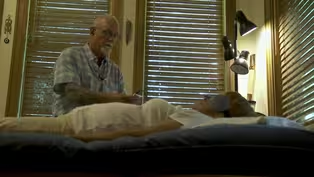VPM News Focal Point
Reviving a forgotten beach called Bay Shore
Clip: Season 2 | 7m 49sVideo has Closed Captions
It was a welcoming playground for Black beachgoers during segregation.
Longtime Virginians are familiar with Virginia Beach and possibly with Buckroe Beach in Hampton, but beginning in the late 1800s, there was a different destination available for Black people looking for a safe holiday in the sun. Former Bay Shore customer Reginald Robinson is a memorabilia collector, a reunion organizer, and a devoted enthusiast who keeps the memories of Bay Shore alive.
Problems playing video? | Closed Captioning Feedback
Problems playing video? | Closed Captioning Feedback
VPM News Focal Point is a local public television program presented by VPM
The Estate of Mrs. Ann Lee Saunders Brown
VPM News Focal Point
Reviving a forgotten beach called Bay Shore
Clip: Season 2 | 7m 49sVideo has Closed Captions
Longtime Virginians are familiar with Virginia Beach and possibly with Buckroe Beach in Hampton, but beginning in the late 1800s, there was a different destination available for Black people looking for a safe holiday in the sun. Former Bay Shore customer Reginald Robinson is a memorabilia collector, a reunion organizer, and a devoted enthusiast who keeps the memories of Bay Shore alive.
Problems playing video? | Closed Captioning Feedback
How to Watch VPM News Focal Point
VPM News Focal Point is available to stream on pbs.org and the free PBS App, available on iPhone, Apple TV, Android TV, Android smartphones, Amazon Fire TV, Amazon Fire Tablet, Roku, Samsung Smart TV, and Vizio.
Providing Support for PBS.org
Learn Moreabout PBS online sponsorshipREGINALD ROBINSON: Bay Shore is a beach that used to be located down in Hampton, Virginia.
Bay Shore was a place that entertained thousands of people every summer, that drew the greatest entertainers from around the country.
Bay Shore was a beach that had the clearest water.
You could actually see to the bottom.
Bay Shore had lifeguards, even though the story at the time was that Black people could not swim, we had lifeguards.
So if we couldn't swim, we still had someone to save our lives.
Bay Shore had everything that Virginia Beach has now, it was just not as large.
Bay Shore was equipped for every accommodation you could possibly want from a hotel at its beach that had a magnificent hotel.
To me, it was humongous.
It was like going into the Taj Mahal to me.
It was a great big hotel.
You went in, you checked in, there was no elevator.
You walked upstairs to get to your room.
The room had double beds.
I slept on a cart, 25 cents for a cart.
Had a little black and white television with the knobs on top, on the little wire stand.
They had a bar, had a nightclub and they had a place for you to eat.
They served the best food, deviled crabs and scrambled eggs with country ham Yes (chuckles).
So Bay Shore started out as a place for Hampton Normal Agricultural students before it became Hampton Institute for students.
Football players and their basketball players, more or less their sports related students to train and convalesce after different events that they were going to do.
And it was also actually set up to house visiting dignitaries to the institute at the time.
So Mr. Franks D. Banks was the bookkeeper at Hampton Institute and he was on his trip to the Chesapeake Bay one Sunday afternoon.
And he noticed that, as usual back then, they didn't have nowhere for Black people to actually go to the beach.
So he figured it's about time, we need to have a place of our own.
We pay taxes.
We are human beings.
We should have somewhere to enjoy, have a place in the sun.
So he got together with a couple of other guys at Hampton and they put together their money.
I think it came to like $15,000.
What they did was they broke it up into $10 shares.
And they purchased some land from a white gentleman who didn't particularly care about Black people, but the guy was welcoming because he was having a rough time with his neighbors and he wanted to get back at them.
And he knew the best way to get back at them was to sell a portion of his property to some Black people that would really get under their skin.
So he did.
He sold them an acre.
They took that acre, they turned it into a four room cottage with a concession stand.
'Cause at the time you couldn't go to any of the pools here in Richmond.
They didn't have any public pools for Black people, even though Black people were paying their taxes like everybody else.
And you could go to the James River, but you took a chance going to the James River because you might get lynched or anything could happen to you at the James River.
So, them opening up Bay Shore and turning it into a just kind of small resort was a godsend for many Black people, not only in Richmond, but in Petersburg and Colonial Heights and Norfolk.
And as time grown by the 1930s, they had a 70 room hotel.
They had a shooting gallery.
They had a merry-go-round, which they purchased in 1914.
They had a rollercoaster and they had numerous concession stands.
Even though business picked up, they had to contend with one thing, mother nature.
In August of 1933, they had a storm called the Great King Storm.
And this storm destroyed almost 75% of the hotel.
In fact, the Bay Shore Hotel stretched from the shoreline all the way to the very tip of the Chesapeake Bay.
You could come out of your room and actually dip your foot in the water.
So it destroyed all of that.
And they had to rebuild.
Now the problem is, we're talking about 1930s America.
Now, Buckroe Beach, their neighbor, they got a substantial amount of money from the federal government to rebuild.
Whereas Bay Shore, they only got $15,000 back.
Now what can you do with $15,000 when you've got a 70 room hotel to repair, you've got a merry-go-round, and you've got a destroyed wooden rollercoaster?
You can't do much.
They went and took that money and rebuilt their pavilion, which housed all their dances and cotillions.
And in fact, I think Bay Shore's pavilion and hotel structure were on the Chitlin circuit.
So many of the artists that you and I might have grown up watching, actually visited there.
And the best part was not only did they visit there and play there, they could stay there and they could go through the front door.
So they didn't have to worry about none of that, "Well, you know, you can play here, but you can't stay here."
They could stay there and they can enjoy the food there.
Well, there was Ella Fitzgerald, I think she grew up I Newport News.
There was Pearl Bailey, who also grew up in Newport News.
There was Cab Calloway, Duke Ellington, and my favorite James Brown.
In fact, I went to see James Brown in 1966 at the City Stadium.
Tickets were 99 cents.
Me and my mother went, and it was sponsored by our radio station that doesn't exist anymore, WANT your favorite radio.
Oh yes, we had a ball and I was the only kid there dressed up with a suit and tie on and a felt hat with a feather sticking out of it.
But I enjoyed myself, yes.
Who else came to Bay Shore?
Martha The Vandellas, Sam Cook, Otis Redding.
It's just too numerous to mention how many stars.
ANGIE MILES: So was Buckroe Beach already in existence?
REGINALD ROBINSON: Buckroe Beach, I believe, opened in 1855 and Bay Shore didn't open until 1898.
And in fact, there's a story that I found hard to believe.
'Cause when I started doing our event down in Hampton nine years ago, I was going around to different people in Hampton asking them questions.
And it was something they said that I never noticed the whole time we went down there, there actually used to be a fence in the water to separate the races.
They had a fence that ran from the shoreline all the way into the deepest end of the Chesapeake Bay so that Black people stayed on their side and white people stayed on their side.
It's amazing to me that you would have a fence in the water, when Bay Shore is notorious for jellyfish stinging you.
Now the jellyfish don't care what color you are, whether you are white or Black.
So, if there's a fence in the water, it might keep the races separated, but it's not going to stop the jellyfish from stinging somebody white over there and coming right over there and stinging a Black person.
ANGIE MILES: But there were other Black beaches as well, right?
REGINALD ROBINSON: Oh yes, there was Seaview Beach in Norfolk.
There was Sunset Lake Park in Chesapeake.
Now, there was Chow Wind Beach, Bire Shores and Hargraves Beach in North Carolina.
And there were a couple of other beaches.
Oh, there was Log Cabin Beach in Williamsburg and there were quite a few other beaches.
In fact, we've honored quite a few of those with Bay Shore Beach Hall of Fame plaques.
And we plan on inducting every Black beach that was in the United States that we can actually find into the Bay Shore Beach Hall of Fame.
Because even I didn't know half of these beaches existed until I got further into the Bay Shore Beach story.
I didn't know half of these beaches existed.
Video has Closed Captions
Clip: S2 | 8m 27s | One way of honoring those who make the ultimate sacrifice is to care for their children. (8m 27s)
Reviving a forgotten beach called Bay Shore
Video has Closed Captions
Clip: S2 | 7m 49s | It was a welcoming playground for Black beachgoers during segregation. (7m 49s)
Video has Closed Captions
Clip: S2 | 2m 34s | Crabbers and regulators clash as Blue Crab populations remain below historic averages. (2m 34s)
Art teachers mentor high school students at Art 180
Video has Closed Captions
Clip: S2 | 5m 41s | Art 180’s Artists residency program connects high school students with working artists. (5m 41s)
Antoine Craig: a blind soccer star who guides others
Video has Closed Captions
Clip: S2 | 5m 10s | Antoine Craig is a member of the first-ever U.S. Men’s National Blind Soccer team (5m 10s)
Politics of abortion in Virginia
Video has Closed Captions
Clip: S2 | 5m 30s | Abortion is on the ballot in Virginia’s November election. (5m 30s)
Young man’s death invokes the history of Central State
Video has Closed Captions
Clip: S2 | 6m 36s | Professor says racial bias denies Black Americans their humanity during a mental crisis. (6m 36s)
UVA’s Larry Sabato talks about historic Trump indictment
Video has Closed Captions
Clip: S2 | 7m 55s | Political analyst Larry Sabato talks about the indictment of former President Donald Trump (7m 55s)
Two-Branch Veteran Focuses on the Future
Clip: S2 Ep19 | 8m 12s | Better preparation for transitions is Jackson's focus (8m 12s)
Samuel Harris wants to invest in vets
Clip: S2 Ep19 | 10m 16s | He's building awareness and support for incarcerated veterans (10m 16s)
Incarcerated veteran takes on leadership role
Clip: S2 Ep19 | 12m 21s | As president of Operation Phoenix, Hall seeks change (12m 21s)
Incarcerated veteran still aims to serve
Clip: S2 Ep19 | 12m 23s | White aims to educate and be educated after twenty years (12m 23s)
He says we've seen this before
Clip: S2 Ep19 | 8m 40s | Navy veteran Tim Miller says veterans face old demons (8m 40s)
Former Marine says it's about the training
Clip: S2 Ep19 | 4m 48s | Wallace says there's good and bad in the military lifestyle (4m 48s)
Aber says Project Exile is in exile
Clip: S2 Ep13 | 17m 2s | Crime-fighting office says it's not in their vocabulary (17m 2s)
A Young Guitar Player on Galax
Video has Closed Captions
Clip: S2 Ep16 | 1m | Lucas Nichols, a guitar player from West Virginia, plays his cover of Blackberry Blossom. (1m)
What are our children eating at school?
Video has Closed Captions
Clip: S2 Ep20 | 8m 15s | Providing fresh options for Virginia’s students that’s helping local farmers and our kids. (8m 15s)
Iconic Chesapeake Bay blue crabs on the rise
Video has Closed Captions
Clip: S2 Ep20 | 2m 12s | There’s an estimated 323 million crabs living in the Chesapeake Bay. (2m 12s)
A Food Revolution led by Native Americans
Video has Closed Captions
Clip: S2 Ep20 | 7m 47s | Native Americans have begun a movement around healthier food and sustainable agriculture. (7m 47s)
Fit4Kids turns exercise and healthy food into a game
Video has Closed Captions
Clip: S2 Ep20 | 3m 26s | Fit4Kids promotes a healthy lifestyle for children by making nutrition and movement fun. (3m 26s)
Families facing food insecurity turn to CornerStore
Video has Closed Captions
Clip: S2 Ep20 | 3m 33s | People living in Virginia rural communities find themselves in a food desert. (3m 33s)
A Virginia veteran challenges limitations to the GI Bill
Video has Closed Captions
Clip: S2 Ep19 | 1m 53s | A veteran accepted at Yale is arguing for benefits given under the GI Bill (1m 53s)
Video has Closed Captions
Clip: S2 Ep19 | 8m 14s | The prison population includes a disproportionate percentage of veterans (8m 14s)
Video has Closed Captions
Clip: S2 Ep19 | 6m 11s | Community efforts focus on suicide prevention (6m 11s)
How Virginia supports its most vulnerable veterans
Video has Closed Captions
Clip: S2 Ep19 | 8m 42s | Helping Virginia’s veterans entangled in the criminal justice system. (8m 42s)
Helping Latino Veterans Thrive
Video has Closed Captions
Clip: S2 Ep19 | 3m 6s | Virginia is home to the only national non-profit focused on helping all Latino veterans (3m 6s)
The Right to Bear Arms vs. The Right to Public Safety
Video has Closed Captions
Clip: S2 Ep18 | 5m 47s | When rights collide over gun ownership versus gun control, a look at the gun debate. (5m 47s)
Israel-Hamas War: Origins and Potential for Escalation
Video has Closed Captions
Clip: S2 Ep18 | 7m 15s | The origins of the war between Israel and Hamas and the potential for a growing conflict. (7m 15s)
Impact of Israel-Hamas War on Virginians
Video has Closed Captions
Clip: S2 Ep18 | 2m 19s | Virginians are reacting to the Israel-Hamas War by exercising their right to protest. (2m 19s)
Video has Closed Captions
Clip: S2 Ep18 | 4m 26s | Two women, guided by their faith, end up on different sides of the debate over abortion. (4m 26s)
Campus Free Speech in Virginia
Video has Closed Captions
Clip: S2 Ep18 | 3m 27s | Where does a student’s right to protest on campus and a speaker’s right to speak collide? (3m 27s)
Virginia Is The World’s Data Center Hub - What’s The Cost?
Video has Closed Captions
Clip: S2 Ep17 | 4m 37s | Most of the world’s internet data flows through Virginia. What do more data centers mean? (4m 37s)
Technology Expert on the Biggest Threats to Democracy
Video has Closed Captions
Clip: S2 Ep17 | 13m 36s | Expert says AI, fake news and social media are not the biggest threats facing democracy. (13m 36s)
Tech journalist and podcast host Kara Swisher talks about AI
Video has Closed Captions
Clip: S2 Ep17 | 19m 7s | Tech journalist and podcast host Kara Swisher says AI "can be a weapon but it’s a tool." (19m 7s)
Is technology overuse hijacking our children’s brains?
Video has Closed Captions
Clip: S2 Ep17 | 3m 18s | A Chantilly, VA teacher says technology overuse is making kids less intelligent. (3m 18s)
Epilepsy treatments: Dr. Kenichiro Ono, VCU Health
Video has Closed Captions
Clip: S2 Ep17 | 3m 17s | Neurologist Dr. Kenichiro Ono discusses deep brain stimulation and treating epilepsy. (3m 17s)
Deep brain stimulation and disease: Dr. Paul Koch, VCU
Video has Closed Captions
Clip: S2 Ep17 | 10m 58s | Dr. Paul Koch discusses deep brain stimulation research and the treatment of disease. (10m 58s)
Video has Closed Captions
Clip: S2 Ep17 | 2m 12s | Artificial intelligence is proving useful for medical breakthroughs (2m 12s)
Artificial intelligence: What are the risks and benefits?
Video has Closed Captions
Clip: S2 Ep17 | 7m 46s | What does a future with artificial intelligence look like? We examine risks and benefits. (7m 46s)
AI, implants & smell: Dr. Daniel Coelho, VCU Health
Video has Closed Captions
Clip: S2 Ep17 | 9m 2s | Dr. Daniel Coelho discusses deep brain stimulation research (9m 2s)
AI and olfactory-implant systems: Dr. Richard Costanzo, VCU
Video has Closed Captions
Clip: S2 Ep17 | 7m 33s | Dr. Richard Costanzo discusses deep brain stimulation research about the sense of smell. (7m 33s)
Traditions Converge at the 87th Old Fiddler’s Convention
Video has Closed Captions
Clip: S2 Ep16 | 3m 43s | Old Time and Bluegrass music on display in Galax, Va., with bands coming from far away. (3m 43s)
Preserving Virginia’s Hip Hop Culture
Video has Closed Captions
Clip: S2 Ep16 | 1m 55s | A university in Virginia is working to preserve hip-hop culture and history. (1m 55s)
Video has Closed Captions
Clip: S2 Ep16 | 8m 39s | The Virginia Humanities Folklife Apprenticeship helps musicians connect to their roots. (8m 39s)
Video has Closed Captions
Clip: S2 Ep16 | 7m 27s | How music education is changing young lives. (7m 27s)
Video has Closed Captions
Clip: S2 Ep16 | 4m 14s | Discover how music has the power to heal those in addiction recovery. (4m 14s)
Video has Closed Captions
Clip: S2 Ep15 | 4m 7s | How redlining is still impacting Black homebuyers. (4m 7s)
A school integration pioneer recalls the end of segregation
Video has Closed Captions
Clip: S2 Ep15 | 13m 21s | The Charlottesville Twelve integrated schools more than a year before Ruby Bridges. (13m 21s)
In Richmond, life expectancy can vary by up to 20 years
Video has Closed Captions
Clip: S2 Ep15 | 3m 10s | Life expectancy varies widely across Richmond’s neighborhoods, according to a VCU study. (3m 10s)
Henrico woman looks to end stereotypes in the water
Video has Closed Captions
Clip: S2 Ep15 | 3m 1s | A Black woman who learned to swim as an adult now seeks to teach others the same skills. (3m 1s)
Providing Support for PBS.org
Learn Moreabout PBS online sponsorship
- News and Public Affairs

Top journalists deliver compelling original analysis of the hour's headlines.

- News and Public Affairs

FRONTLINE is investigative journalism that questions, explains and changes our world.












Support for PBS provided by:
VPM News Focal Point is a local public television program presented by VPM
The Estate of Mrs. Ann Lee Saunders Brown
